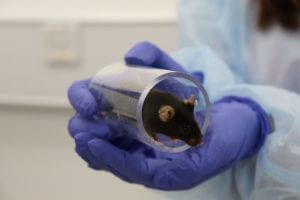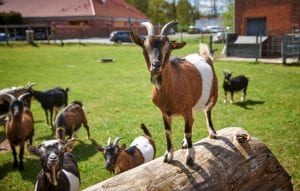

The Animal Welfare Research Network (AWRN) aims to bring animal welfare research and stakeholder communities together to facilitate exchange of ideas and skills, support researchers, identify and target key issues, and drive collaboration from basic science to implementation. The University of Bristol has been central to the success of the AWRN, through the involvement of their academic and support staff.
Due to his reputation in the field of animal welfare science, Mike Mendl (University of Bristol) was invited by BBSRC to apply for funding for a research network to support research in this area, resulting in the AWRN being founded in 2016. Mike worked with Poppy Statham (also University of Bristol) to design the AWRN, deciding what was needed by the animal welfare research community and how they could best be supported. Mike created a fantastic Coordinating Group of senior animal welfare researchers and agreed to take on the role of Network Lead, overseeing the development and ongoing funding of the AWRN for the next 6 years.
The Network Manager is responsible for the day to day running of the AWRN and Poppy has been in this role for the last 7 years, other than a maternity leave which was covered by Anna Trevarthen (University of Bristol). Over the years they have set up and updated the AWRN website, run 7 Annual Meetings, supported the organisation of over 20 workshops, written over 70 newsletters for members, uploaded over 130 current research articles to the website and recruited over 1,000 members. The role has evolved over the years to fit the needs of the animal welfare community, with new schemes being developed including the mentoring scheme, lab exchange scheme and monthly meet ups aimed specifically at supporting early career researchers and kick start funding to support submission of grants in animal welfare science.
The AWRN is now co-hosted by the University of Bristol and Queen’s University Belfast, with Gareth Arnott (QUB) in the role of Network Lead and Poppy Statham (University of Bristol / QUB) remaining in the role of Network Manager. The AWRN is funded until 2025 with a UKRI-BBSRC grant with GPA Award (includes funding from the Animal Welfare R&D budget held jointly across Defra, Scottish Government and Welsh Government). Mike is still a key member of the AWRN Coordinating Group as is Carole Fureix (University of Bristol)
If you want to learn more about the AWRN, there is lots of information on the website: Link to AWRN website






